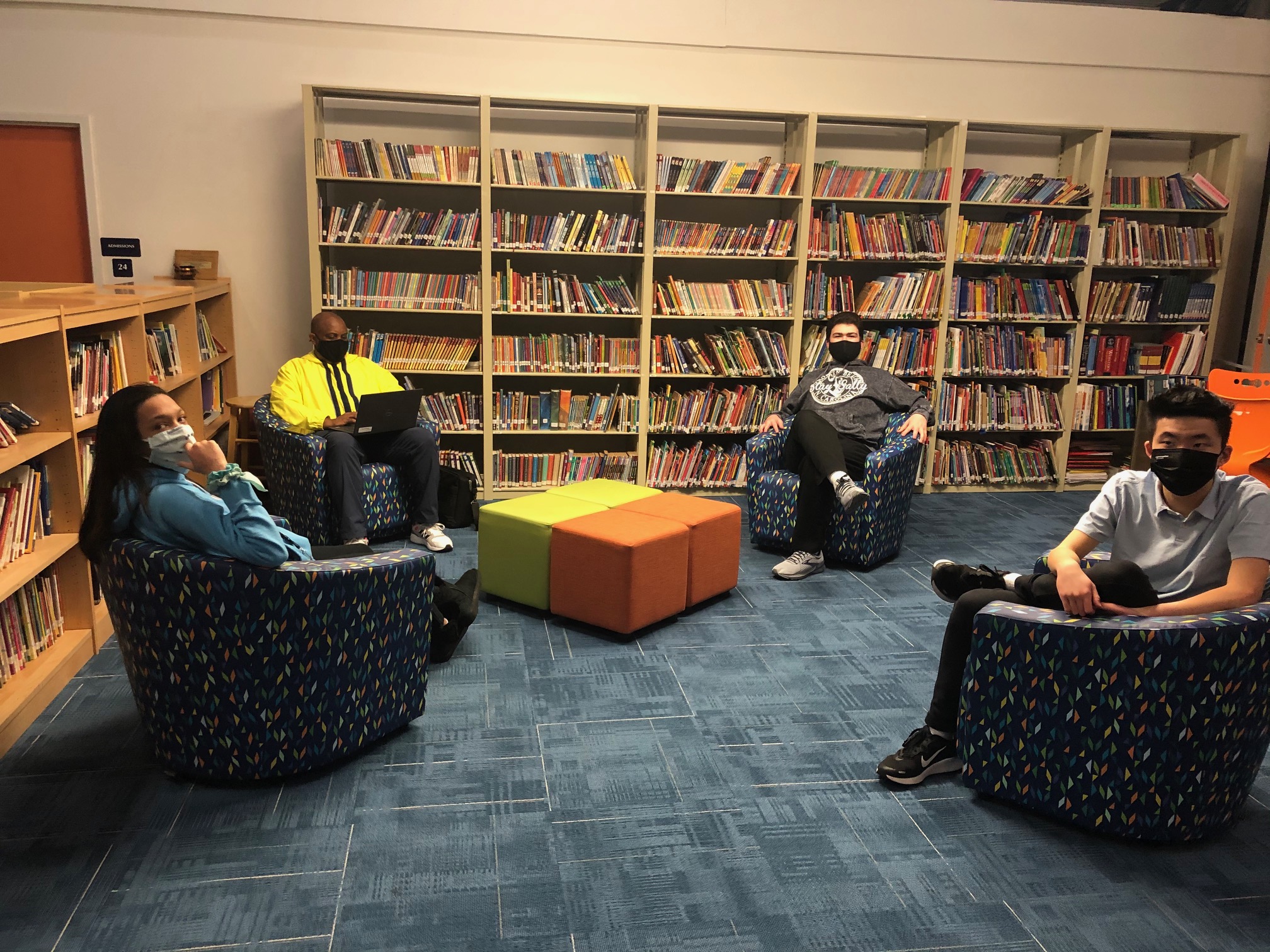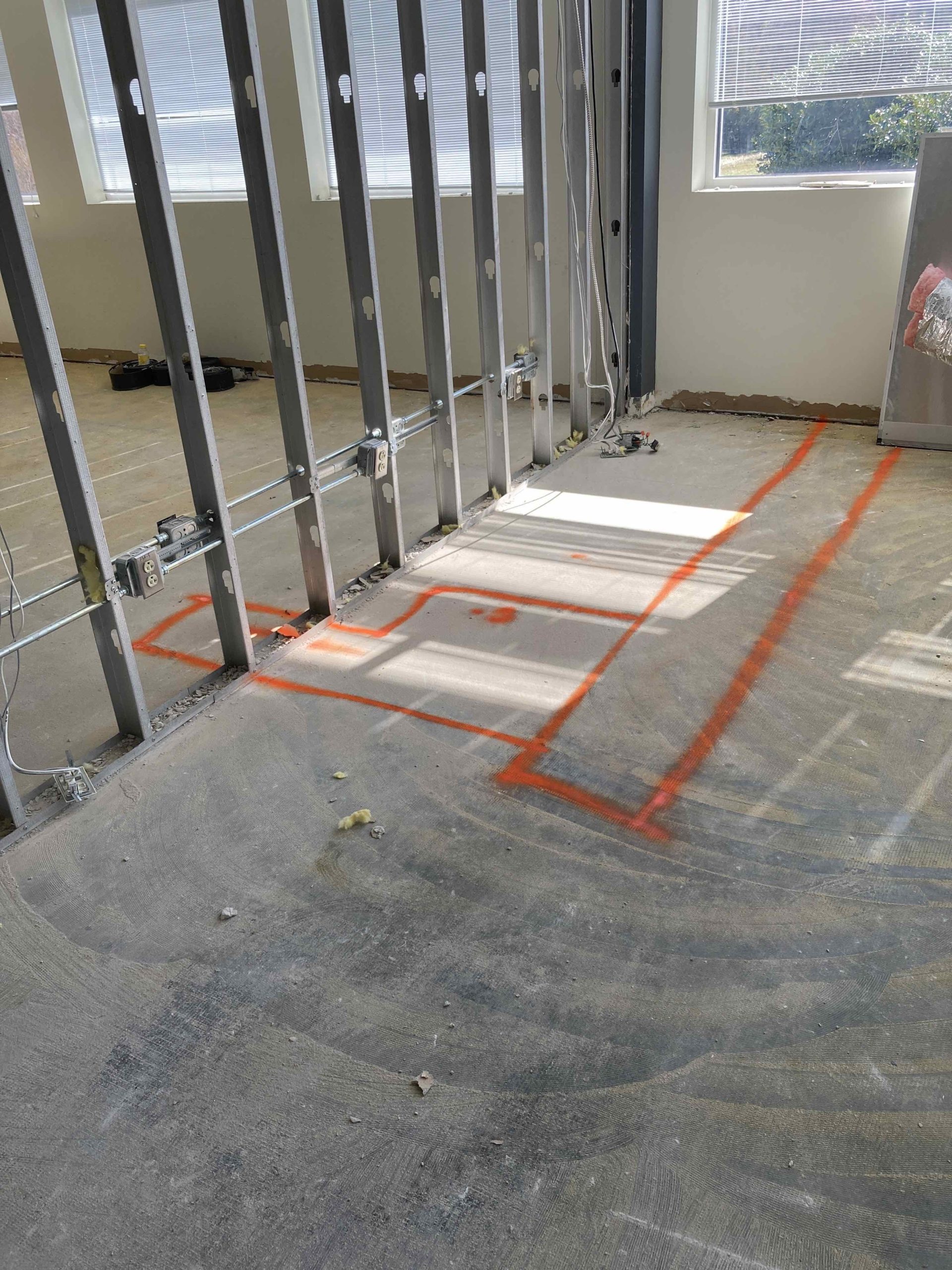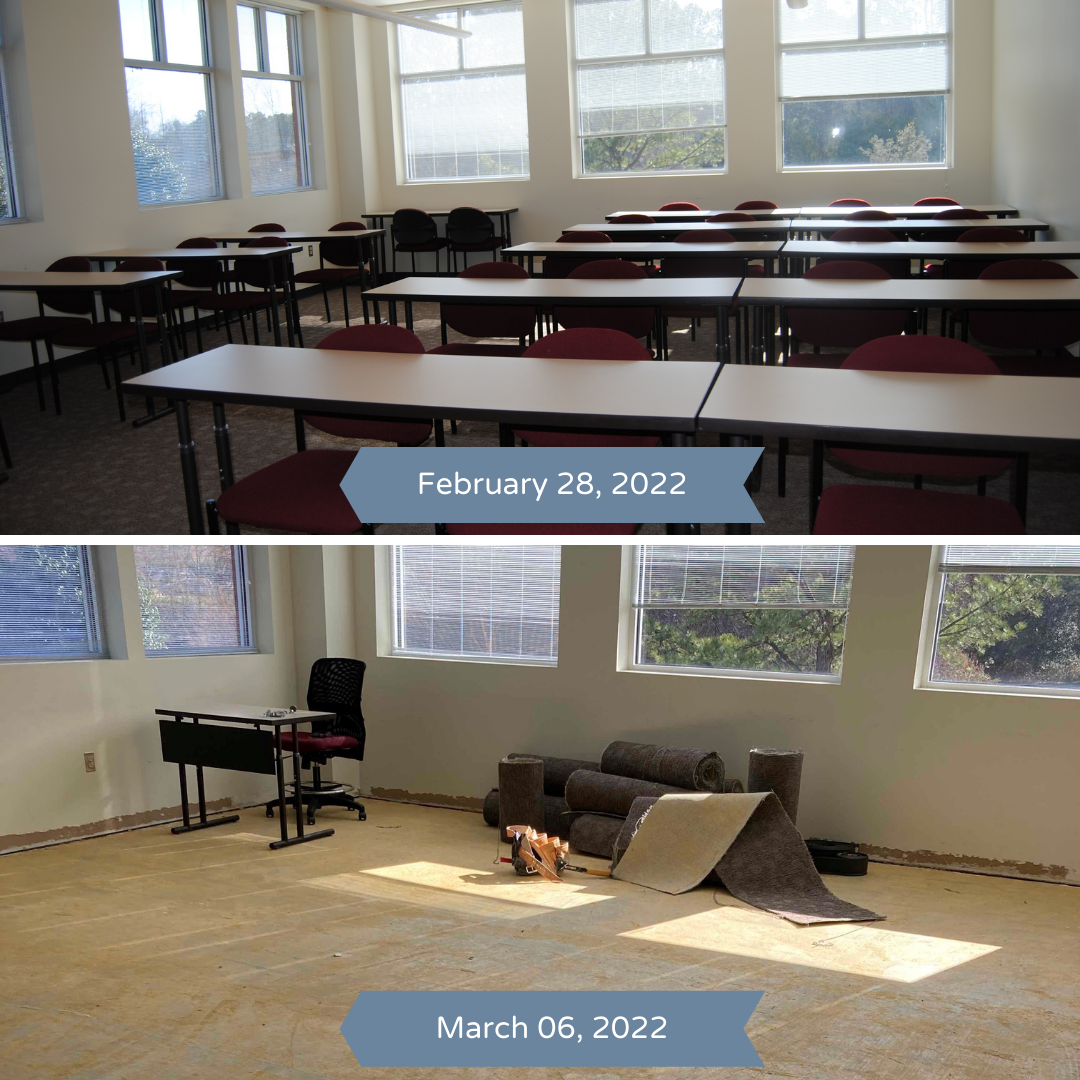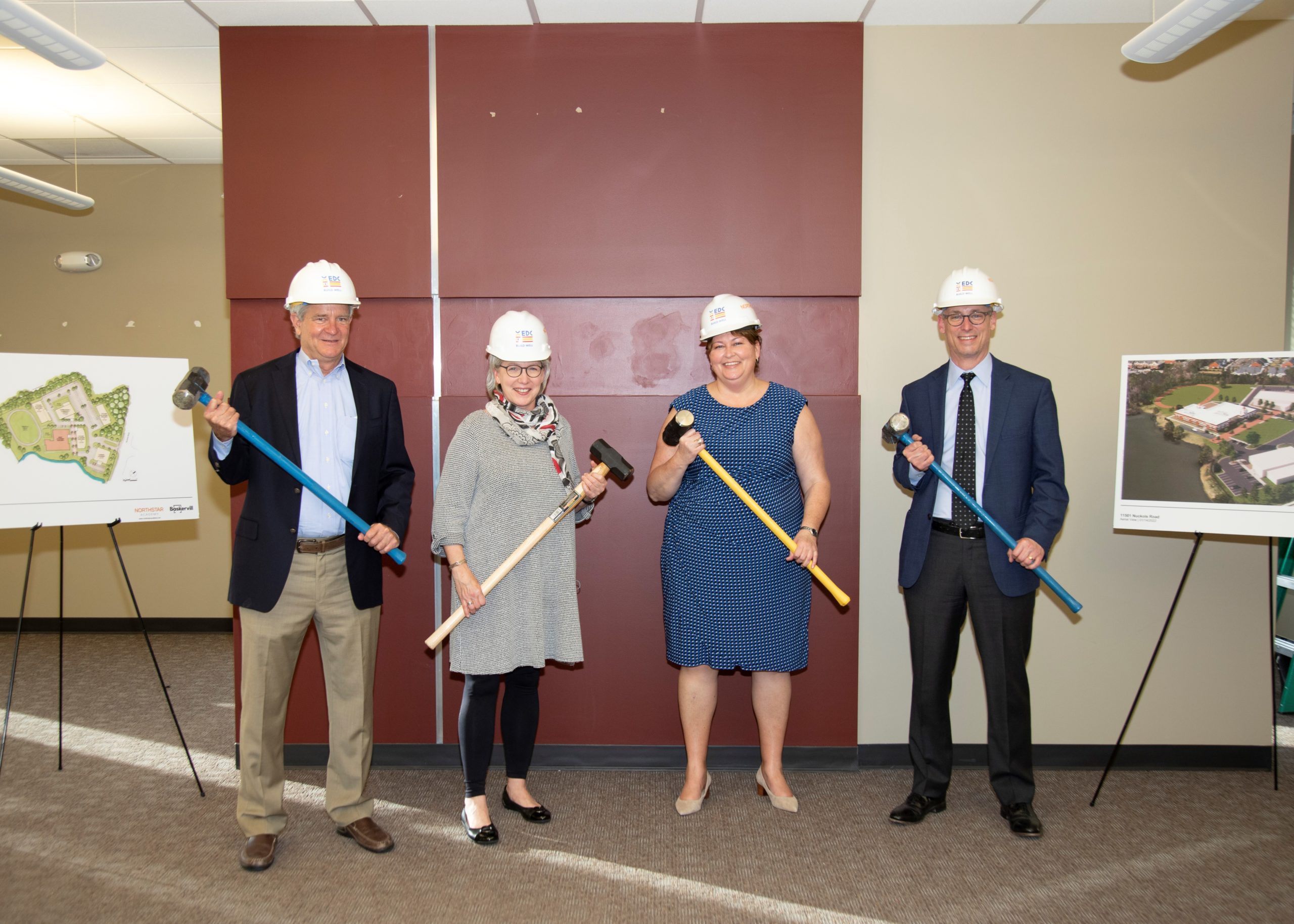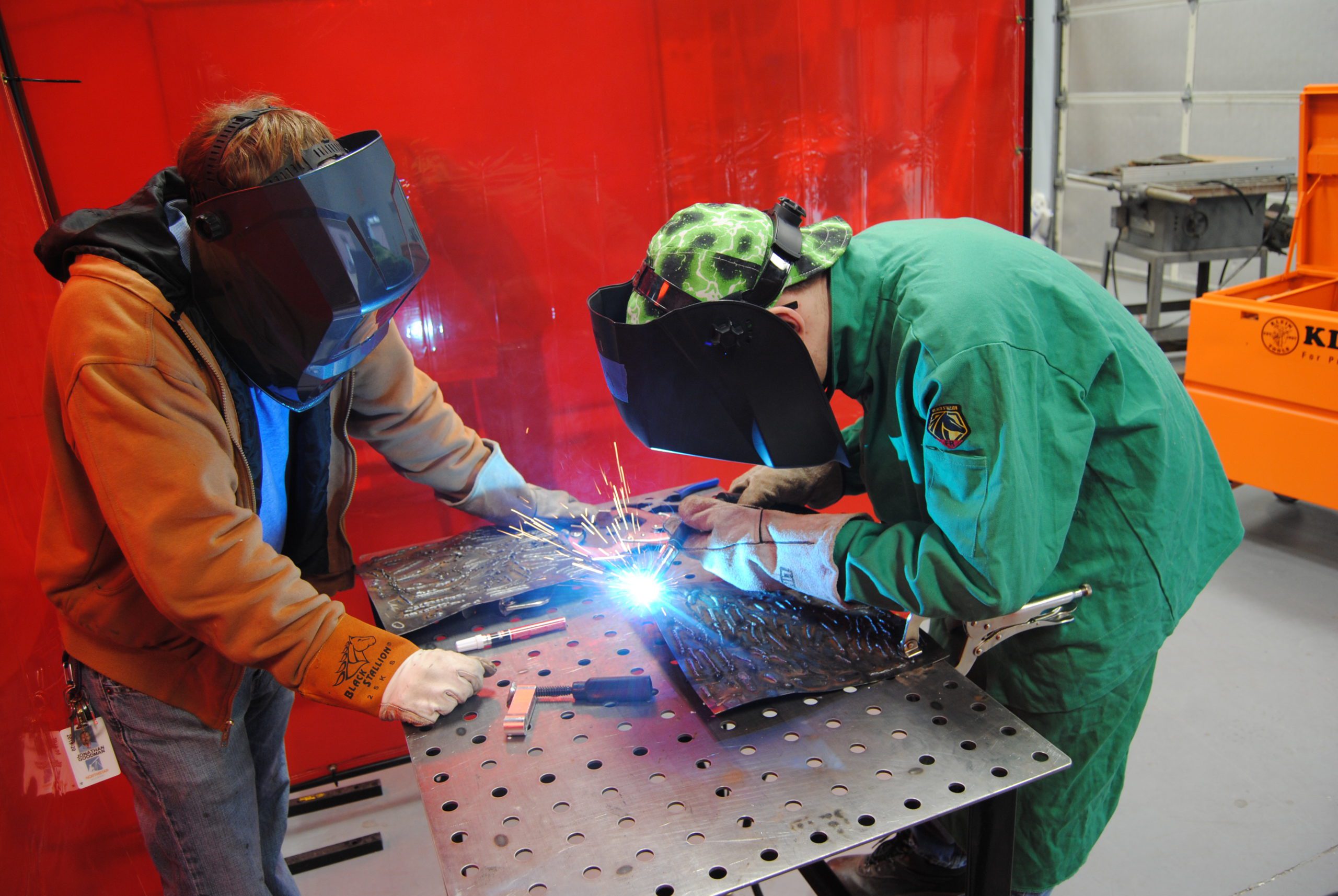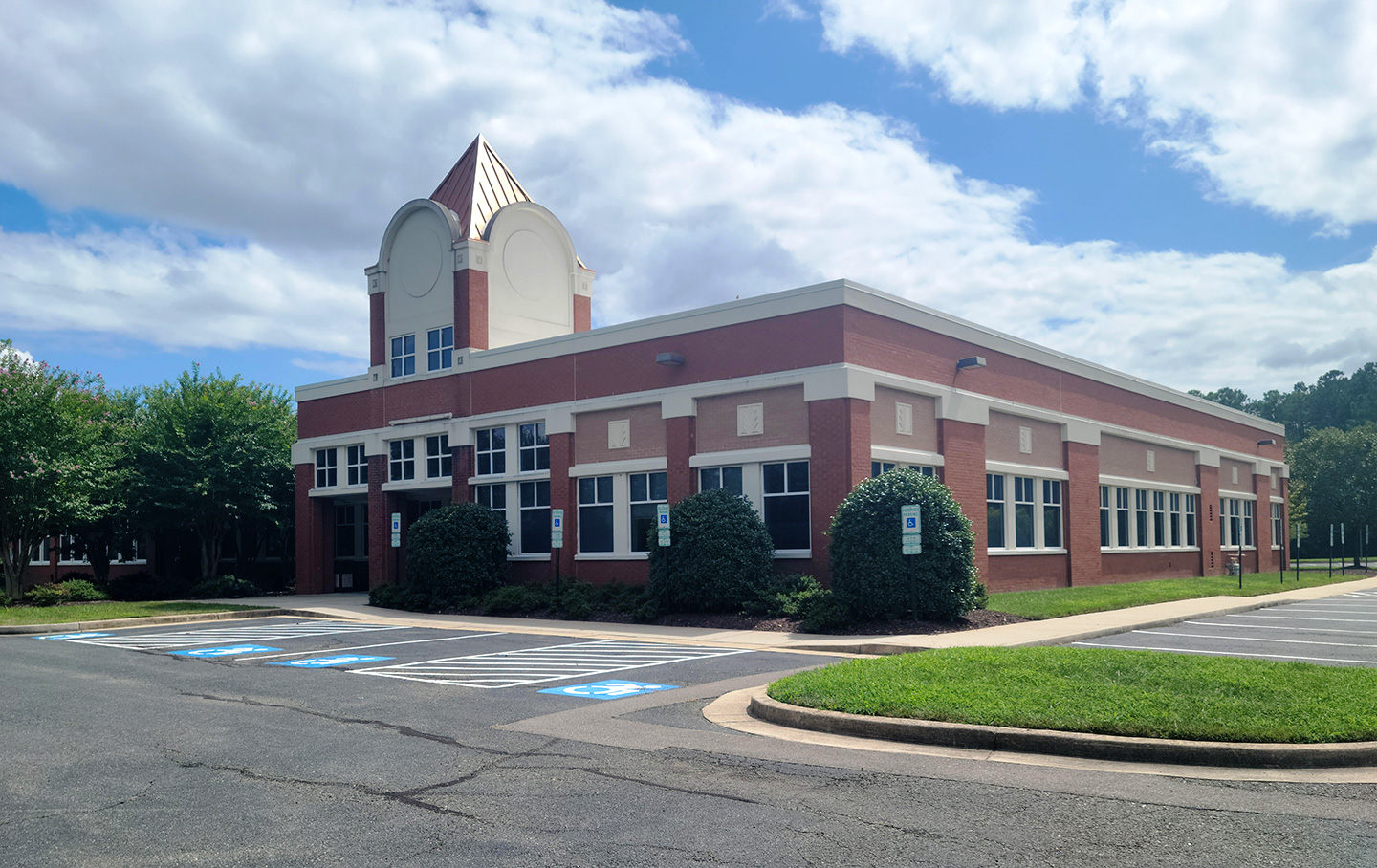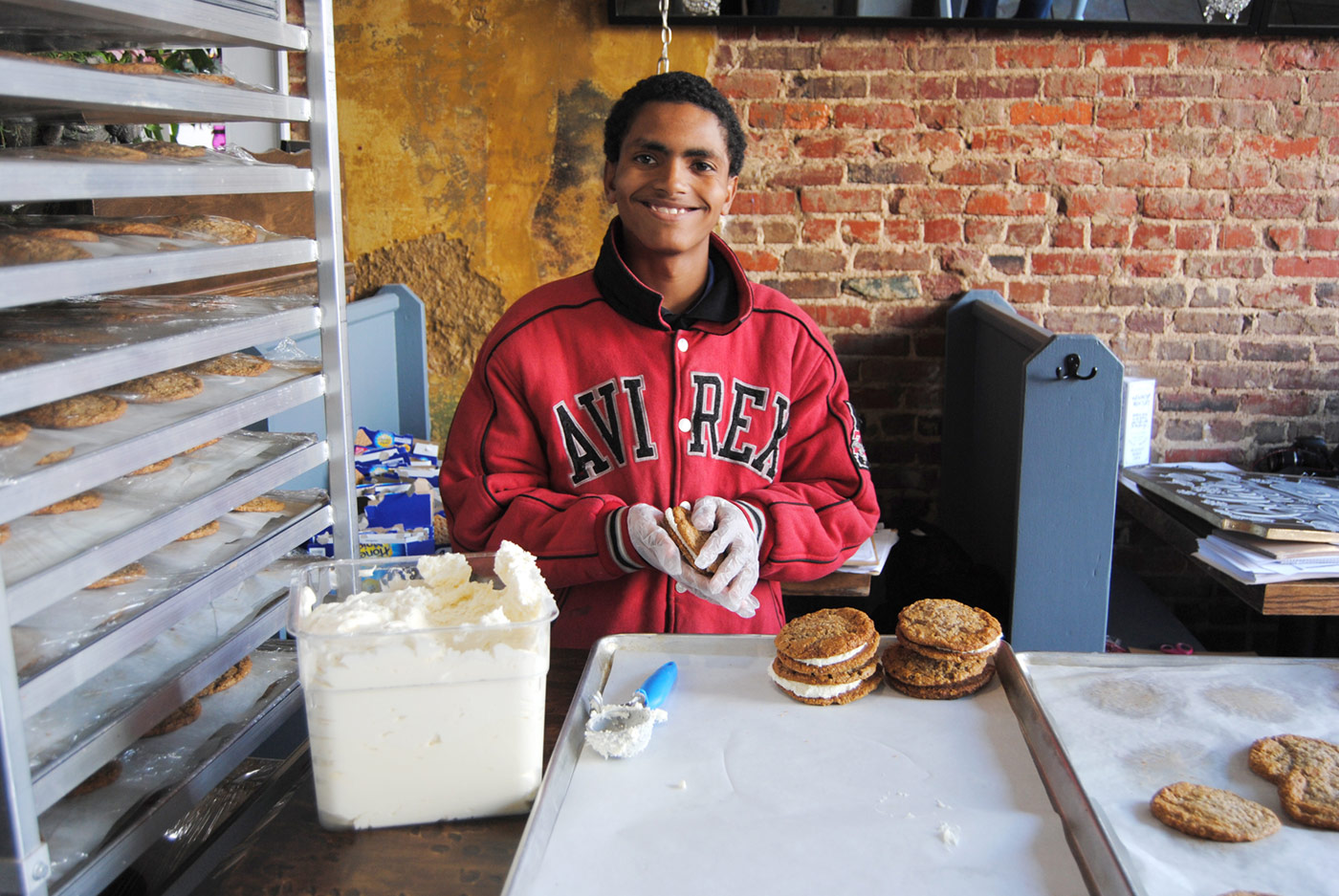Construction Update #3

Do you remember the picture with the orange spray paint last week? This is a picture of that same area.
The concrete has been cut and the ground has been dug up so new plumbing can officially go in. We are getting closer and closer to demo and plumbing being complete!
Spring Open Houses
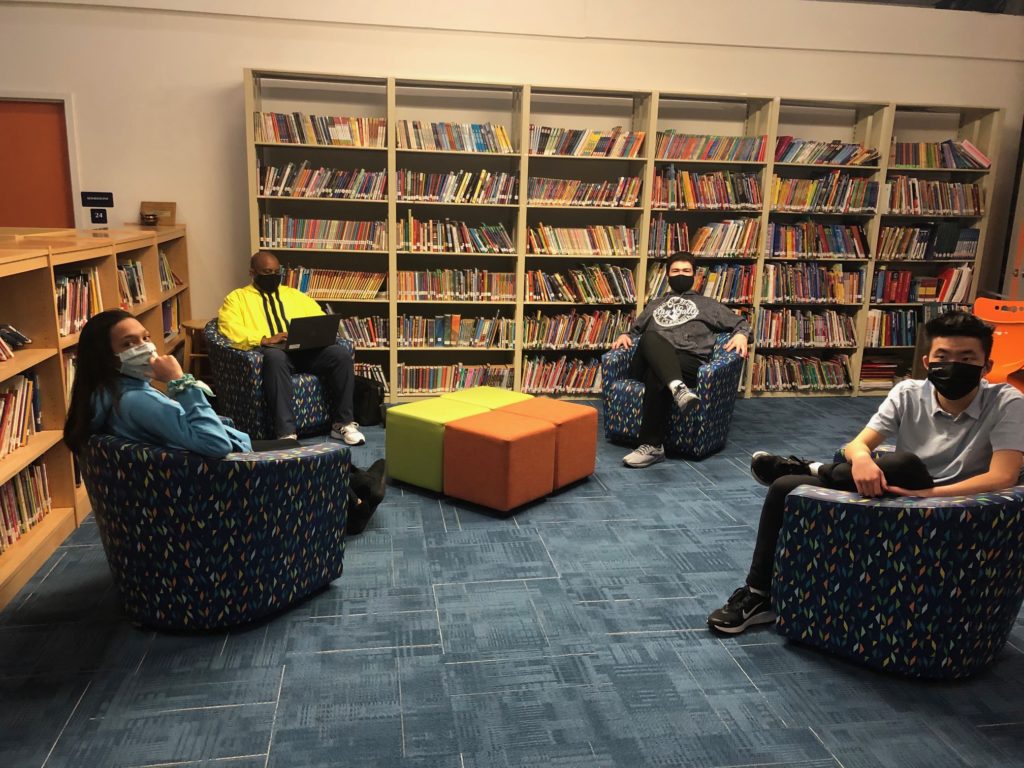
Both our Northstar Academy AND Northstar Career Academy campuses will be open to visitors during our Spring Open House on Saturday, April 23rd between the hours of 9am-12pm.
RSVP is strongly encouraged. RSVP HERE!
Northstar Academy provides instruction for students who have academic, physical or social challenges ages 5-21.
While Northstar Career Academy builds pathways to employment for young adults with academic, physical or social challenges ages 16-24.
We serve students from localities across Central Virginia including students from 16 different school systems.
This informal open house is open to everyone! Priority enrollment for the 2022-2023 school year is currently happening. Discover if Northstar is the right fit for your child or young adult.
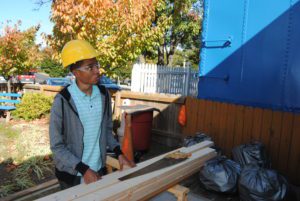
Drop by either or both campuses anytime between the hours of 9am-12pm on Saturday, February 19th and you will have the opportunity to:
- Tour the campus
- Learn about our programs and curriculum in lower, middle and upper school
- Learn about the 5 technical training programs offered at Career Academy - Business Technology, Construction & Maintenance, Hospitality, Materials Handling, Veterinary Assisting
- Speak with our Director of Admissions
- Learn about tuition and scholarships
- Get a glimpse into what the future holds for Northstar
Construction Update #2
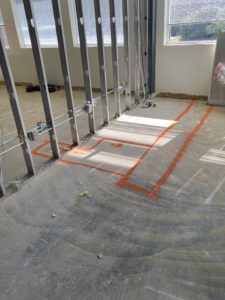
Two weeks in and the demolition phase is in full swing. Walls have come down, framing is going up, and progress is continuing to be made.
Do you have a guess as to what that orange spray paint is doing on the floor?
It notifies workers that new plumbing will be installed in that area. In this picture, it shows where the plumbing will go to host a new sink in the classroom.
Construction Update #1
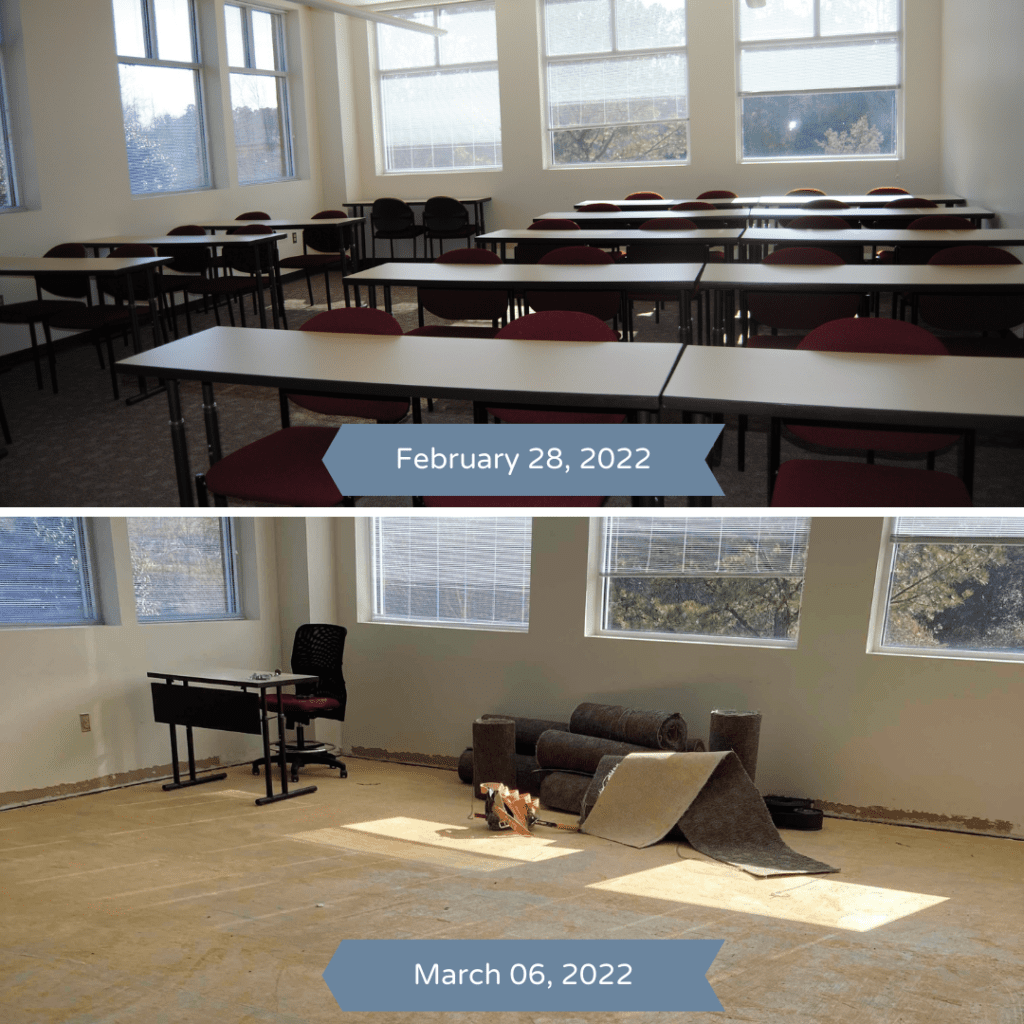
Can you believe these pictures are of the same classroom?
Major changes are already visible throughout our new campus just one week into renovations.
Special shout out to our general contractor, UrbanCore and our friends over at EDC for their project management in making sure everything stays on timeline.
Stay tuned for further updates!
Renovations Have Begun!
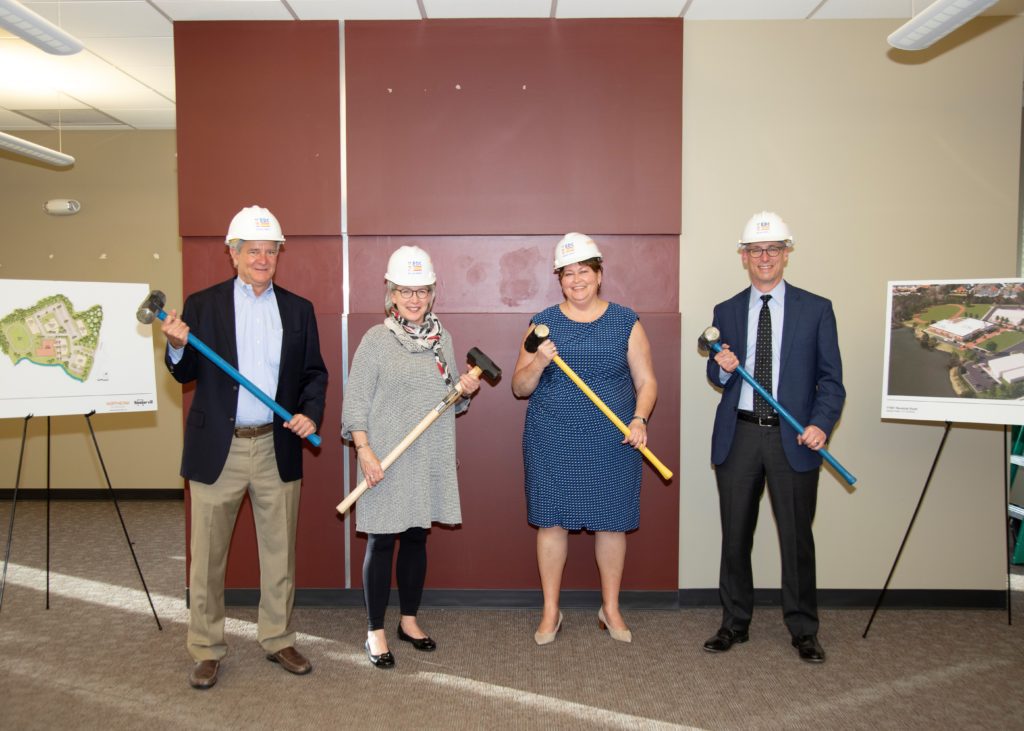
Renovations have officially begun on our Nuckols Rd campus! On Wednesday, February 23, 2022 Northstar staff, board members and a small group of community partners and representatives kicked off renovations with a “wall-breaking” ceremony.
Ms. Trent took the first swing and officially kicked off renovations!
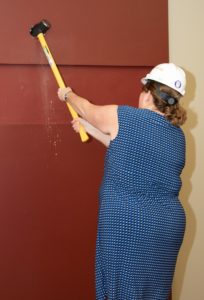
Now that the renovations are underway, we will continue to keep you and your family updated on the status of our new campus as we move through the renovation process. These updates will continue to be posted under the "blog" section of our website, as well as in the Navigator News and on social media.
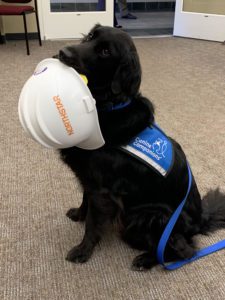
As a reminder, based on the current construction timeline, Northstar is planning to move into the new space in late June/early July 2022.
*Masks were removed for the purposes of the photo only.
Come Visit Campus!

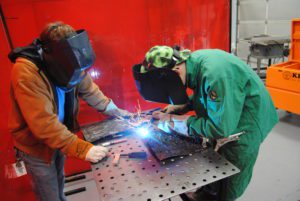
Both our Northstar Academy AND Northstar Career Academy campuses will be open to visitors during our Winter Open House on Saturday, February 19th between the hours of 9am-12pm.
RSVP is strongly encouraged. RSVP HERE!
Northstar Academy provides instruction for students who have academic, physical or social challenges ages 5-21.
While Northstar Career Academy builds pathways to employment for young adults with academic, physical or social challenges ages 16-24.
We serve students from localities across Central Virginia including students from 16 different school systems.
This informal open house is open to everyone! Priority enrollment for the 2022-2023 school year is quickly approaching. Discover if Northstar is the right fit for your child or young adult.
Drop by either or both campuses anytime between the hours of 9am-12pm on Saturday, February 19th and you will have the opportunity to:
- Tour the campus
- Learn about our programs and curriculum in lower, middle and upper school
- Learn about the 5 technical training programs offered at Career Academy - Business Technology, Construction & Maintenance, Hospitality, Materials Handling, Veterinary Assisting
- Speak with our Director of Admissions
- Learn about tuition and scholarships
- Get a glimpse into what the future holds for Northstar
Masks are required while on campus.
Transformational Move For Northstar Academy And Northstar Career Academy
RICHMOND, Va., Sept. 16, 2021 /PRNewswire/ -- Since 1999, Northstar Academy has proudly served hundreds of students with learning differences from our Shrader Road campus in Henrico County, Va.
The school has grown over the last 25 years, with approximately 125 students annually across two campuses (Northstar Career Academy is housed on Staples Mill Road). As a school that serves the Greater Richmond, Va. area, including 18 public school districts, and driven by Northstar's most recent Strategic Plan, the school's leadership sought a new property to support the critical need to expand and provide the most accessible and inclusive environment possible for their community of learners.
Northstar purchased an incredible property that exceeded all hopes and expectations - the former Strayer University campus on Nuckols Road in Henrico County, Va. This new location offers ample opportunity and benefits, some of which include:
- It is just over 5 miles from its current location.
- It is very accessible from major roadways - Interstates 295 and 64, and State Route 288.
- The facility sits on over 10 acres and is more than 21,000 square feet.
- It provides access to nature and greenspace.
- The facility is fully ADA-compliant and has spacious hallways and classrooms.
- The facility and property are large enough to accommodate both Academic and Career Academy students in one location.
According to Northstar's head of school, Crystal Trent, "This property is what we would build if we were raising a school from the ground up. Our students are excited about a highly engaging learning space with more natural light and green space. This new building will offer more space for our teachers to implement the customized learning approaches they develop for our students."
This announcement comes at the midpoint of Northstar's capital campaign. Though additional community support is still needed to realize the full vision for the space, this property was undeniably the best option for Northstar students and faculty. Northstar is incredibly thankful for the early campaign donors who have supported this exciting purchase and believed in our vision to relocate to a space worthy of our exceptional students. With the support of our donors, and because Northstar Academy has been an excellent steward of its funds in the past, the school was able to secure this building while still in the midst of its campaign fundraising. Northstar will continue to solicit funds for vital improvements to the property, including adding a gymnasium, athletic fields, and interior facility renovations.
"The board of trustees has done an enormous amount of work to create the foundation for a successful campaign, both in terms of planning and fundraising," said Northstar's director of development, Lindsay Lane Robinson. "Their generosity is a testament to the community's belief in the importance of this project."
For more information about the move, or to make a donation to the capital campaign, contact Lindsay Lane Robinson at 804-747-1003 or lrobinson@northstarva.org.
About Northstar Academy: Northstar Academy promotes educational excellence and career opportunities for students with disabilities who have academic, physical, or social challenges. Northstar Academy is licensed by the Virginia Department of Education and is a fully accredited member of the Virginia Association of Independent Schools and the Virginia Association of Independent Specialized Education Facilities. It does not discriminate on the basis of race, color, religion, sexual orientation, or national and ethnic origin in the administration of its education policies, admission policies, programs or athletic and other school administered programs. Learn more at www.northstarva.org.
View press release here: https://www.prnewswire.com/news-releases/transformational-move-for-northstar-academy-and-northstar-career-academy-301378989.html?tc=eml_cleartime
Webinar: Next Steps to Employment
If you want to know the answers to these questions, this webinar is for you.
• How can supported employment work for you?
•What are some best practices for working with DARS?
•What are the next steps to take after Pre-Employment Transition Services?
https://youtu.be/596HksP035c
Five Questions to Ask About Support Services
Contemplating employment can bring on a cocktail of many feelings: excitement, anxiety, the thrill of freedom, the dread of workplace tedium, fear for personal safety, gratification from being an important part of an adult team, and a rewarding sense of being valued for what one uniquely has to offer.
Part of this journey involves the consideration of whether or not to access services to facilitate entry into the workforce. These services are often referred to as supported employment services or vocational rehabilitation. Like any field involving a government agency, learning about services, the jargon, and a new set of acronyms can add a layer of difficulty to an already charged experience.
Here is a list of “terms to know” and resources to help you get started.
1. What is DARS?
The Department of Aging and Rehabilitative Services (DARS) is the state agency tasked with providing vocational rehabilitation to assist people with disabilities to prepare for, secure, retain or regain employment. Sometimes our students begin working with DARS while they are in high school receiving Pre-Employment Transition Services (Pre-ETS). These student work with a DARS representative to identify their strengths and interests and to explore their possible paths in the workforce. Students who qualify for services may also work with a case manager to develop an Individual Plan for Employment (IPE). The case manager discusses different planning tools and resources to pave the way for eligible clients to enter the workforce. Sometimes the services include vocational assessments, driving assessments, or independent living assessments. Sometimes DARS will provide services through a vendor “Employment Services Organization” (ESO). For more information on DARS and services they provide, see their website: https://www.vadars.org/drs/.
2. What is a WISA?
A Work Incentives Special Advocate (WISA) works with DARS clients and their families to guide them through the process of juggling their income and their benefits reporting requirements. We know that that a person will always have a larger income when working than when not working. A WISA can help clients understand how to navigate the process of handling their benefits given their newfound income. Ask your DARS counselor about whether or not working with a WISA would be an appropriate part of your Individual Plan for Employment.
3. What is a job coach?
A job coach, or Employment Specialist, is a person who works directly with a client with disabilities while he is seeking and becoming established in employment. Some job coaches work directly for DARS. Oftentimes Employment Specialists work for Employment Service Organizations (ESOs), a private organization providing services for DARS through a vendor relationship. The Employment Specialist works directly with a client to identify prospective employers, to support clients during the hiring and on-boarding processes. Employment Specialists continue to work with clients until they are stable on the job.
4. What is customized employment?
Customized employment is a flexible, collaborative process through which an employment candidate is matched with a prospective employer based on a tailored pairing of the candidate’s strengths and the employer’s needs. An Employment Specialist facilitates the conversation between the two parties rather than supporting a client through a standing “cookie cutter” recruitment process. Many of our students may not find their best employment fit by reviewing job descriptions that were written without a particular person in mind. By customizing employment, employers can find the talent they need without screening out qualified candidates with spurious requirements. To read success stories about how customized employment can work, see the Department of Labor’s website: https://www.dol.gov/odep/documents/vignette_v3_blue_508_final.pdf.
5. What are long-term follow along services?
After an employee is stable at a job, DARS will close that person’s case. However, if there are any changes in the job or opportunities for advancement, the employee should not hesitate to reach out to his case manager to see if he qualifies for services that could support him during these changes. In the meantime, if a client has worked with an Employment Specialist (job coach) through an ESO (DARS vendor), in many cases that Employment Specialist will touch base at least once per month as a part of long-term follow along services to see how the client is doing. This provides the client with an on-going touchstone in case there are small issues to resolve along the way.
In conclusion, it is an exciting and dynamic time to be entering the workforce. Many companies in our area and across the country are thinking more creatively than ever about how they can truly include team members with all backgrounds and support needs. Slowly but surely, the business community is recognizing the value that inclusive employment practices can lend their company’s growth, bottom line, and role in the community. These are just a few of the tools and initiatives that are paving the way for today’s graduates. Entering the workforce equipped with knowledge about these resources will lead a candidate to be better equipped than ever to step into employment.
Planning for your child’s transition from high school to the next steps of early adulthood can be complex and overwhelming. Many questions are difficult to answer during this time of rapid and dynamic development in your child’s life. How can you anticipate the needs your child will have in a year, or three years, or even five years?
Transition planning does not start by being able to answer these questions. Every transition to adulthood is a winding road filled with unexpected twists and turns. The challenges of disability can add to the complexity of this journey. We know to expect that these questions will change and evolve as the journey continues.
Transition planning can make a strong start by first “filling your toolbox” with as much information and access to services as is appropriate for your child’s unique journey. Many transition processes are complex and time-consuming. Starting eligibility processes early can allow for services to more accessible when your child needs them.
Here are five questions to help get you started as you search for tools that will work for your child.
1. Getting a job: I want my child to work, but I’m not sure where to start. What services are available for my child?
Employment looks different for each Northstar student. Each student brings different strengths to the workforce, and each family works through a unique series of challenges to guide them along the way. The agency charged with providing employment services and supports to adults with disabilities is the Department for Aging and Rehabilitative Services (DARS). Northstar IEP and IAP liaisons are here to help you through the eligibility application. We recommend that you apply as early as tenth grade as the eligibility process can take time. However, some of our students are now receiving Pre-Employment Transition Services (Pre-ETS) while they are still completing high school. This is a good way to learn about the services DARS has to offer and to learn about steps students can be taking toward employment. Learn more about DARS here: https://www.vadars.org/drs/
2. College: My child and our whole family have been working hard to prepare for college. How does transition planning factor into college planning?
Transitioning to college is still transitioning from high school to the next step. More and more colleges are offering support services and unique programming to open access to learners of all needs. Be aware that in college, protections offered students under the Individuals with Disabilities Education Act (IDEA) no longer apply. The Americans with Disabilities Act guarantees equal access to college students with disabilities. Visiting prospective colleges’ offices of student accommodations can be a helpful step in assessing the fit of that college experience. We are glad to be located near two community colleges with very active and supportive Offices for Student Accommodations. Learn more about their work here: http://www.reynolds.edu/student_services/accommodations/default.aspx and https://www.jtcc.edu/services/advising-center/disabilities-support-services/.
Also, learn more about Courage to Succeed, a program supporting college students at Reynolds Community College, here: https://www.charterhouseschool.org/courage-to-succeed/.
3. Transportation: I’m not sure if my child is going to get a driver’s license any time soon and maybe won’t get one at all. How do I figure out transportation?
Our Northstar parents tell us that the best strategy for transportation is just like strategies they have used for lots of other areas in their children’s lives: have multiple options. Even if your child is going to be a driver, he/she may not be comfortable driving in all types of weather, traffic conditions, or states of mind. A Care Card allows a person to use the Carevan, a door-to-door van service that costs $6 each way. Completing the eligibility paperwork takes about 40 minutes. The approval process takes about three months. Even if you don’t plan on your child using this or a similar service as a primary means of transportation, it is a useful back-up tool. Learn more about eligibility here: http://ridegrtc.com/services/specialized-transportation/care#Eligibility
Also, if a person has a Care Card, he can ride the GRTC bus for free! GRTC also offers free travel training to persons needing support learning to ride the bus safely. Kelsey Chalder will meet with your family, get to know your child, and make a travel training plan with you. Learn more about travel training here: http://ridegrtc.com/services/travel-training-program.
Finally, if your child is going to take the tests for a Learner’s Permit or a Driver’s License, be sure to ask that they receive the testing accommodations that will allow them to produce the most authentic results. See more information about this here: https://www.dmv.virginia.gov/drivers/#disability/visit_assist.asp.
4. Disability Benefits: What is the difference between SSI and SSDI?
Did you know that many people who have been diagnosed with a disability protected by the ADA are eligible to collect SSDI benefits based on their parents’ work experience when their parents retire? Understanding how SSI and SSDI can impact your child’s long-term financial picture are critical pieces of a complicated puzzle. Attorneys who specialize in special needs law can help families identify the financial planning tools and benefits that make sense for your family. The Disability Law Center of Virginia also has useful guidance materials to help you along the way: https://www.dlcv.org/socialsecurity
5. Income and Eligibility for Benefits: I want my child to get a job but not to lose her benefits. What should I do?
The short answer is proven by the math: a person will always have more income when employed than when unemployed.
Navigating the procedures necessary to stay in compliance with all of the agencies supporting your child is not always so straightforward. Thanks to a special grant, Work Incentives Special Advocates are now available to DARS clients to discuss ways that they can both be engaged in the workforce and continue to collect the benefits they need to maintain their health and stability. Talk to your DARS counselor about this service and learn more here: https://www.vadars.org/gsp/wisa.htm.
Five Questions to Ask About Transition
Planning for your child’s transition from high school to the next steps of early adulthood can be complex and overwhelming. Many questions are difficult to answer during this time of rapid and dynamic development in your child’s life. How can you anticipate the needs your child will have in a year, or three years, or even five years?
Transition planning does not start by being able to answer these questions. Every transition to adulthood is a winding road filled with unexpected twists and turns. The challenges of disability can add to the complexity of this journey. We know to expect that these questions will change and evolve as the journey continues.
Transition planning can make a strong start by first “filling your toolbox” with as much information and access to services as is appropriate for your child’s unique journey. Many transition processes are complex and time-consuming. Starting eligibility processes early can allow for services to more accessible when your child needs them.
Here are five questions to help get you started as you search for tools that will work for your child.
1. Getting a job: I want my child to work, but I’m not sure where to start. What services are available for my child?
Employment looks different for each Northstar student. Each student brings different strengths to the workforce, and each family works through a unique series of challenges to guide them along the way. The agency charged with providing employment services and supports to adults with disabilities is the Department for Aging and Rehabilitative Services (DARS). Northstar IEP and IAP liaisons are here to help you through the eligibility application. We recommend that you apply as early as tenth grade as the eligibility process can take time. However, some of our students are now receiving Pre-Employment Transition Services (Pre-ETS) while they are still completing high school. This is a good way to learn about the services DARS has to offer and to learn about steps students can be taking toward employment. Learn more about DARS here: https://www.vadars.org/drs/
2. College: My child and our whole family have been working hard to prepare for college. How does transition planning factor into college planning?
Transitioning to college is still transitioning from high school to the next step. More and more colleges are offering support services and unique programming to open access to learners of all needs. Be aware that in college, protections offered students under the Individuals with Disabilities Education Act (IDEA) no longer apply. The Americans with Disabilities Act guarantees equal access to college students with disabilities. Visiting prospective colleges’ offices of student accommodations can be a helpful step in assessing the fit of that college experience. We are glad to be located near two community colleges with very active and supportive Offices for Student Accommodations. Learn more about their work here: http://www.reynolds.edu/student_services/accommodations/default.aspx and https://www.jtcc.edu/services/advising-center/disabilities-support-services/.
Also, learn more about Courage to Succeed, a program supporting college students at Reynolds Community College, here: https://www.charterhouseschool.org/courage-to-succeed/.
3. Transportation: I’m not sure if my child is going to get a driver’s license any time soon and maybe won’t get one at all. How do I figure out transportation?
Our Northstar parents tell us that the best strategy for transportation is just like strategies they have used for lots of other areas in their children’s lives: have multiple options. Even if your child is going to be a driver, he/she may not be comfortable driving in all types of weather, traffic conditions, or states of mind. A Care Card allows a person to use the Carevan, a door-to-door van service that costs $6 each way. Completing the eligibility paperwork takes about 40 minutes. The approval process takes about three months. Even if you don’t plan on your child using this or a similar service as a primary means of transportation, it is a useful back-up tool. Learn more about eligibility here: http://ridegrtc.com/services/specialized-transportation/care#Eligibility
Also, if a person has a Care Card, he can ride the GRTC bus for free! GRTC also offers free travel training to persons needing support learning to ride the bus safely. Kelsey Chalder will meet with your family, get to know your child, and make a travel training plan with you. Learn more about travel training here: http://ridegrtc.com/services/travel-training-program.
Finally, if your child is going to take the tests for a Learner’s Permit or a Driver’s License, be sure to ask that they receive the testing accommodations that will allow them to produce the most authentic results. See more information about this here: https://www.dmv.virginia.gov/drivers/#disability/visit_assist.asp.
4. Disability Benefits: What is the difference between SSI and SSDI?
Did you know that many people who have been diagnosed with a disability protected by the ADA are eligible to collect SSDI benefits based on their parents’ work experience when their parents retire? Understanding how SSI and SSDI can impact your child’s long-term financial picture are critical pieces of a complicated puzzle. Attorneys who specialize in special needs law can help families identify the financial planning tools and benefits that make sense for your family. The Disability Law Center of Virginia also has useful guidance materials to help you along the way: https://www.dlcv.org/socialsecurity
5. Income and Eligibility for Benefits: I want my child to get a job but not to lose her benefits. What should I do?
The short answer is proven by the math: a person will always have more income when employed than when unemployed.
Navigating the procedures necessary to stay in compliance with all of the agencies supporting your child is not always so straightforward. Thanks to a special grant, Work Incentives Special Advocates are now available to DARS clients to discuss ways that they can both be engaged in the workforce and continue to collect the benefits they need to maintain their health and stability. Talk to your DARS counselor about this service and learn more here: https://www.vadars.org/gsp/wisa.htm.


